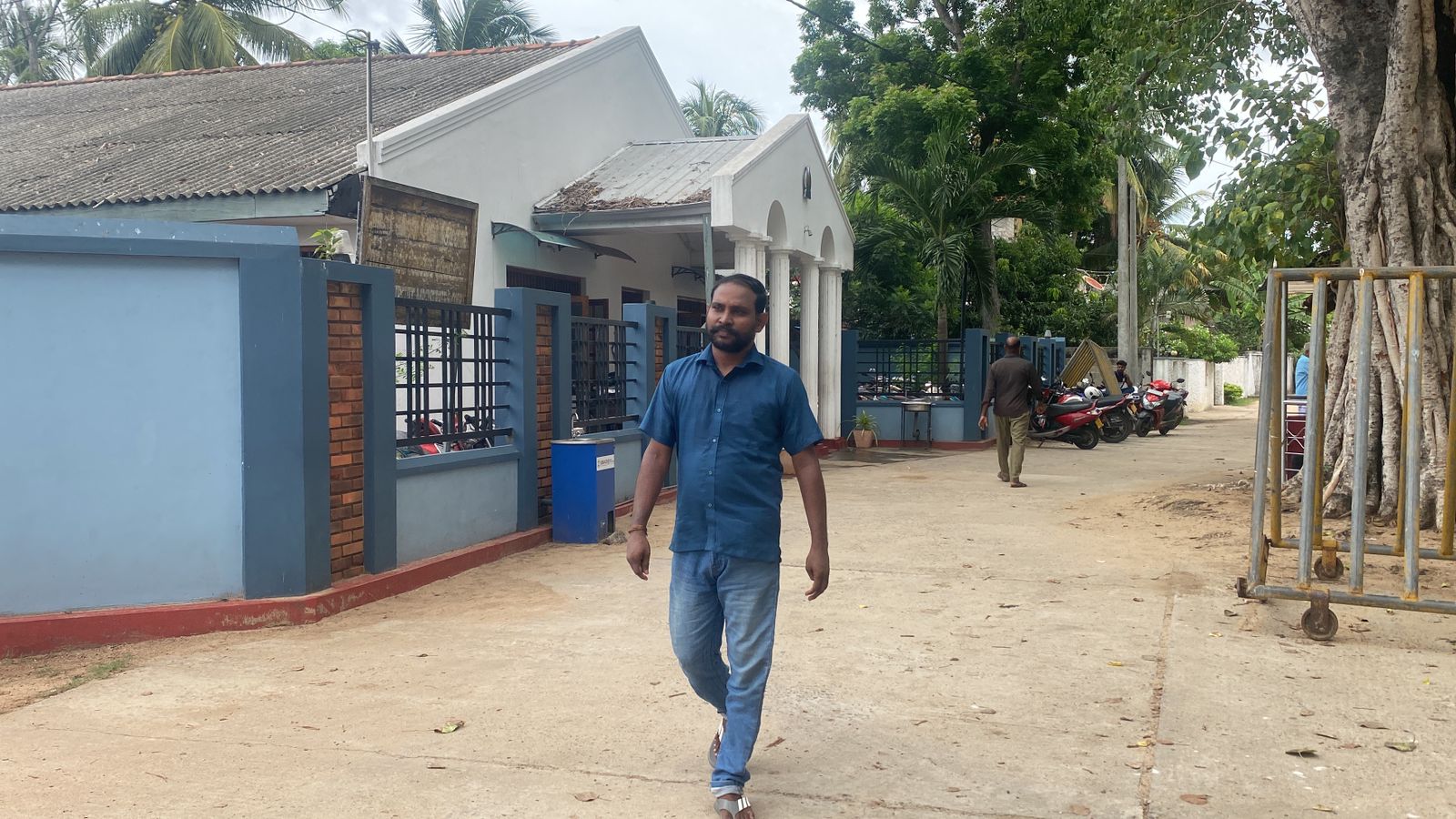
S. Nilanthan, a Batticaloa-based Tamil journalist, was arrested for his reporting on alleged corruption involving a local Sri Lankan government official in 2020 earlier today.
Nilanthan, who is also a correspondent for the Tamil Guardian, was later released on bail by the Eravur Magistrate but has been ordered to appear in court at the next hearing.
His arrest comes after he reported on corruption allegations against the Chenkalady Divisional Secretary (DS) and covered protests staged by local residents outside the Divisional Secretariat. This latest development is seen as an extension of a trend of targeting Tamil journalists on the island.
In 2020, Nilanthan had written extensively for Tamil-language news platforms on allegations of corruption linked to the Chenkalady DS. He also reported on protests organized by the local community against the DS, demanding accountability. Following his reporting, the journalist alleges that the DS used his influence to intimidate him by having Sri Lankan police officers visit his home at night in plain clothes, threatening him with arrest.
Nilanthan lodged a formal complaint the following day but the Sri Lankan police denied any knowledge of such a visit. A separate complaint was also filed with the local Human Rights Commission (HRCSL), raising concerns about the conduct of the police. Despite this, the harassment continued, and earlier this week police from the Eravur station once again visited Nilanthan's home.
On his most recent arrest, according to Nilanthan, he was taken from his home at around 3 p.m. by officers from the occupying Eravur police station and held in appalling conditions. After spending the night in a severely overcrowded detention cell designed for four people but housing more than seven, Nilanthan described the unsanitary environment as "unfit for human use." The cell's urinal and defecation area were inside the enclosure, lacking proper shelter, and there was no water available for sanitation. Nilanthan recounted, detailing how he was treated “like a murderer” from the moment of his arrest until he was brought before the magistrate.
The court proceedings were brief, and Nilanthan was released on bail, but the trial has been scheduled for January 20, 2025. He faces charges that he sees as an attempt to criminalize his work as a journalist. He added that the harassment he has endured has taken a severe emotional toll on him and his family, with his children and wife urging him to step back from his journalism career out of fear for their safety.
Nilanthan's case highlights a broader issue of press freedom for Tamil journalists reporting from the North-East. Tamil journalists have long been targets for harassment and threats, by Sri Lanka's security forces and government officials.

